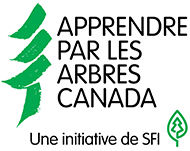![]()
Plenty Canada

Plenty Canada is an Indigenous not-for-profit organization committed to reconciliation through the cross-cultural protection of nature. We believe that merging Indigenous knowledge systems with Western science is essential for effective environmental stewardship. Plenty has successfully served in a coordinating role for community and youth-led initiatives to further reconciliation with each other and all of life over 45 years. The Plenty Canada Headquarters and Land-based Learning Campus are located in Indigenous-managed, FSC-certified forest in Eastern Ontario.
Histoire de l'entreprise
Though Plenty Canada was federally incorporated in 1984, our activities began all the way back in 1976, when we formed to provide relief to Mayan communities in Guatemala after a devastating earthquake. Even back then, we used a mixture of Indigenous knowledge and sustainable technologies to reconstruct
almost 1,400 homes, along with a dozen schools and clinics.
After this point, we would continue to gain experience aiding Indigenous groups around the world, while advocating for the use of local Indigenous knowledge in the community building process. For example, we were asked by Chief Tsepo Nhuebe, of the Quithing River Valley region of Lesotho, to assist the local people in creating self-sustaining projects. This led to a huge number of projects benefiting a large area, such as safe drinking water projects, literacy programs, community gardens, and training local women in soya production. In the 80s, we used our Lesotho soya production experience to set up Soya production centres in Sri Lanka, one in Kandy and another in Colombo, while sticking to our policy of ensuring that these centres enhanced local knowledge and reached a high level of self-sufficiency.
Since the 90s, the organization has become more focused on advocating for Indigenous issues at home, as well as abroad. In fact, Plenty Canada was speaking up about Canada-related issues such as reconciliation long before they became popular subjects of public discourse.
Along with community-building projects, we also have had our hands in a number of local environmentalist initiatives: sustainable forestry, protecting endangered species, education on invasive
species, wild rice cultivation/gathering, and more. In addition, we have long served the needs of our local community through a number of educational workshops—birch bark canoe demonstrations, ‘country food’ workshops, and a number of youth programs such as the Youth Circle for Mother Earth.
This transition, from an international development organization to an organization that is now also focused on sustainable living and Indigenous rights at home, is largely thanks to the decades-long
leadership of our current Executive Director, Larry McDermott. Having been involved in those early international projects, Larry has now accumulated decades of experience in advocacy and policy-making, and now uses this experience to represent Plenty Canada (and the Indigenous peoples of our country in general) across the world. For instance, Larry was both a Commissioner for the Ontario Human Rights Commission, as well as a member of the Ontario Species a Risk Public Advisory Committee. He is currently a council member of the Ontario Professional Foresters Association and is a founding member of the Eastern Ontario First Nations Working Group.
With Larry at the helm, Plenty’s recent and upcoming projects have been an exciting culmination of all that came before. We have recently provided Covid relief packages to Indigenous communities in
Guatemala and Peru, carrying on our legacy of Indigenous advocacy in the region. We have also continued to tend to our local environment, sowing and harvesting wild rice on Rice Lake with the help of Plenty Canada Natural Resource Advisor Jeff Beaver. We are also excited to unveil the Great Niagara Indigenous Cultural Map, an interactive digital map of important cultural sites in the Niagara escarpment, presented in multiple languages.
Overall, Plenty will continue to carry out the mission it established for itself decades ago, when advocacy for Indigenous peoples was in short supply: to ‘facilitate access to and share resources with Indigenous peoples and other communities groups around the world, in support of their environmental protection and sustainable development goals.’



